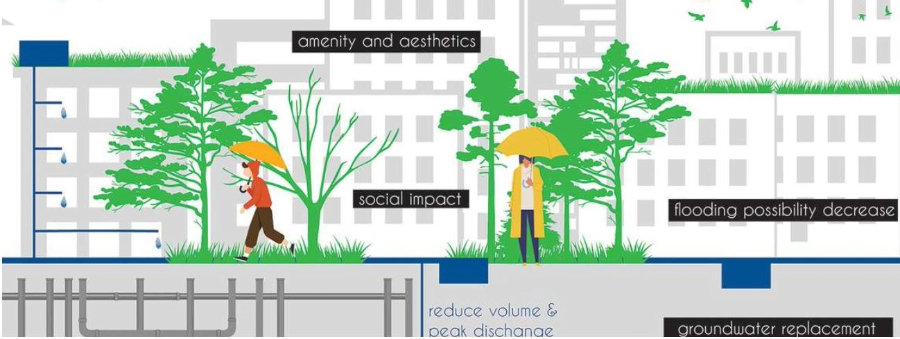Introduction to Smart Water Management
The water distribution process is a fundamental component that connects the various components of urban life. Proper water management is critical for sustaining urban populations’ well-being, fostering economic growth, protecting the environment, and ensuring the general sustainability of cities.
The exponentially increasing number of metropolitan areas has brought with it complicated issues in water resource management. The ever-growing demand for water in modern urban areas has transformed water management into a pressing concern. The strain on existing resources and infrastructure due to escalating water needs cannot be ignored any longer. To efficiently manage water resources, improved smart water management solutions are required to enable the sustainable growth of metropolitan areas. To combat this challenge, innovative technologies like smart water monitoring and distribution systems have been introduced in residential zones. These cutting-edge systems harness state-of-the-art technologies to amplify water conservation, curtail wastage, and ensure the sustainable utilization of water resources for the long term.
Specializing in real-time interventions, novel technology, and methodology for effective water system monitoring, analysis, and control. The importance of integrated data-driven techniques in supporting resilient urban life. The dynamic environment of smart water management is required, emphasizing its vital role in ensuring sustainable urban life by combining real-time data collection and processing.
Significance of Smart Water Systems
Traditional water distribution frameworks often grapple with inefficiencies arising from problems like leaks, inaccurate consumption tracking, and a lack of real-time information. Smart water systems aim to transcend these limitations by leveraging an array of advanced technologies, including sensors, sophisticated data analytics, and robust communication networks.
Components of Smart Water Systems
- Sensor: An array of sensors plays a pivotal role in sophisticated water management systems, closely monitoring various aspects of water supply and distribution. These state-of-the-art sensors are adept at detecting leaks, assessing the condition of pipes and infrastructure, and gauging parameters such as water flow rate, pressure levels, and overall water quality.
- Data Analytics: Cutting-edge algorithms sift through real-time data gathered by sensors, enabling the identification of patterns, anomalies, and potential issues. Anticipatory actions can then be taken by water utilities to mitigate wastage and the costs of repairs, foreseeing leaks or faults.
- Remote Monitoring: Water utility operators can remotely track usage trends, evaluate system performance, and make well-informed decisions without the necessity of physical inspections.
- Automation: Smart systems introduce automation to various activities, like adjusting water pressure during non-peak hours or swiftly responding to leaks. This automated approach significantly contributes to water conservation and enhances overall system efficiency.
Advantages of Smart Water Systems
- Eco-Friendly: The deployment of smart water systems aids in environmental preservation by minimizing water wastage and the associated energy consumption tied to water distribution.
- Water Conservation: Armed with reliable real-time data, residents and water utility providers can swiftly locate and rectify leaks, leading to reduced water wastage and the prudent conservation of this precious resource.
- Enhanced Services: Residents reap the benefits of improved water quality, uninterrupted supply, and minimal service disruptions due to maintenance work.
- Reduced Expenses: End users enjoy cost savings on repairs, upkeep, and energy usage by detecting leaks early on and optimizing the distribution process.
Navigating Challenges and Deliberations
- Initial Capital Outlay: The introduction of smart water systems requires a significant initial investment in terms of technology, equipment, and infrastructure upgrades.
- Data Security and Privacy: The collection and analysis of sensitive water consumption data pose challenges related to data security and privacy. Adequate safeguards must be instituted to protect this information.
- Integration with Existing Infrastructure: Seamlessly integrating smart technologies with established water distribution networks is essential to streamline water delivery and cut down distribution time.
Conclusion
Smart water monitoring and distribution systems hold the promise of addressing the challenges of efficient residential water management. These systems possess the ability to conserve water, reduce expenses, and continuous water supply for present and future generations, with sensors, data analytics, and automation. As technology advances, the embrace of these innovations could emerge as a cornerstone of smart city initiatives globally.
Smart water management is a critical aspect in the transformation of urban centers in both developed and developing countries into intelligent and environmentally friendly municipalities, hence promoting their evolution into Advanced Sustainable Cities (ASC).
https://development.asia/explainer/what-smart-water-management

